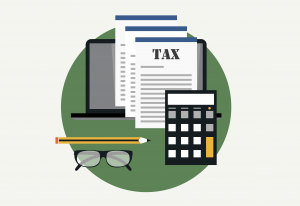
In Ontario, several taxes and fees can come into play upon death, often referred to as “hidden taxes” because they might not be immediately obvious. These include:
- Estate Administration Tax (EAT): Often referred to as Probate Fees, this is a tax levied on the total value of the deceased’s Estate. The rates are as follows:
- $0 for the first $50,000 of the Estate’s value
- $15 per $1,000 of the Estate’s value over $50,000
- Income Taxes: The deceased’s final tax return must be filed, and any income earned up to the date of death is subject to regular income tax. Additionally, certain deemed dispositions occur upon death, meaning the deceased is considered to have sold certain assets at fair market value, which can trigger capital gains tax. For example:
- Registered Retirement Savings Plans (RRSPs) and Registered Retirement Income Funds (RRIFs) are considered fully cashed in upon death unless transferred to a surviving spouse or a dependent child in certain circumstances. This is why we recommend you have Beneficiaries identified on these final products including insurance policies as tax can be avoided in many situations.
- Non-registered investments may be subject to capital gains tax if their value has increased since they were acquired.
- Harmonized Sales Tax (HST): While not a direct tax upon death, HST may apply to services required to settle the Estate, such as legal fees, accounting fees, and executor fees.
- Capital Gains Tax: If the deceased owned properties other than their principal residence, such as a cottage or investment property, these are subject to capital gains tax on any appreciation in value.
- Final Tax Return: The executor must file a final tax return for the deceased, which includes income from all sources up to the date of death. This can sometimes result in a higher tax rate due to the combined income.
- Trust Income Tax Returns: If the Estate remains open and generates income, the Estate may need to file trust income tax returns, and any income distributed to Beneficiaries could be taxed.
Proper Estate Planning can help minimize some of these taxes. Strategies may include:
- Using tax-efficient investment accounts
- Establishing trusts
- Making gifts before death
- Designating beneficiaries for RRSPs and RRIFs and Insurance products
- Having Secondary Wills
Consulting with a legal or financial advisor specializing in Estate Planning is advisable to navigate these complexities and optimize the Estate for tax purposes.
For more information, check out our blog post, Financial Planner Perspective on Estate Planning
Ontario website for calculating Estate Administration Tax Probate Tax Calculator
Want more information?
Are you interested in a consultation with Peter R. Welsh?
Contact me at Peter@SmartWills.ca
By telephone 416-526-3121
Register for our blog to get valuable tips and up-to-date alerts.
This material is for general information and educational purposes only. Information is based on data gathered from what we believe are reliable sources. It is not guaranteed as to accuracy, does not purport to be complete and is not intended to be used as a primary basis for investment decisions.


